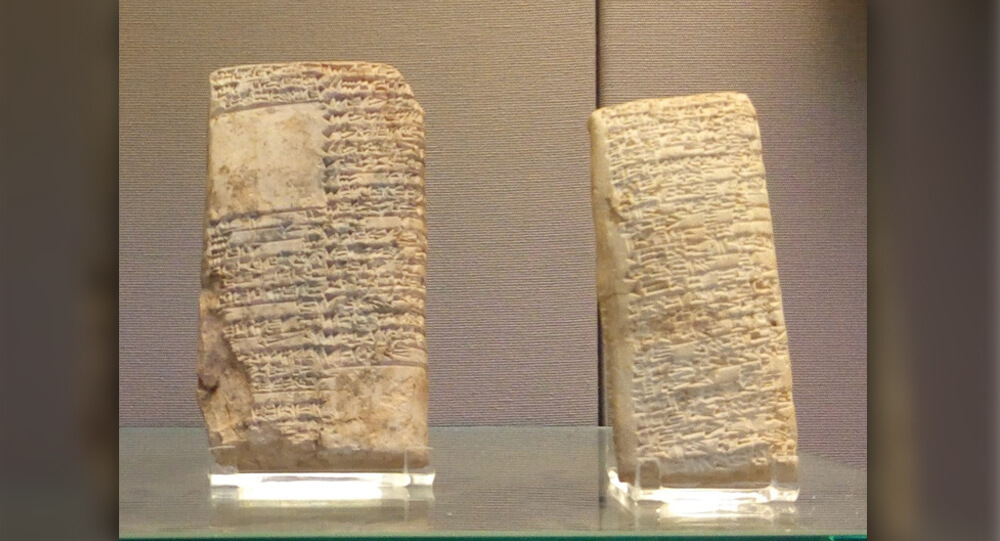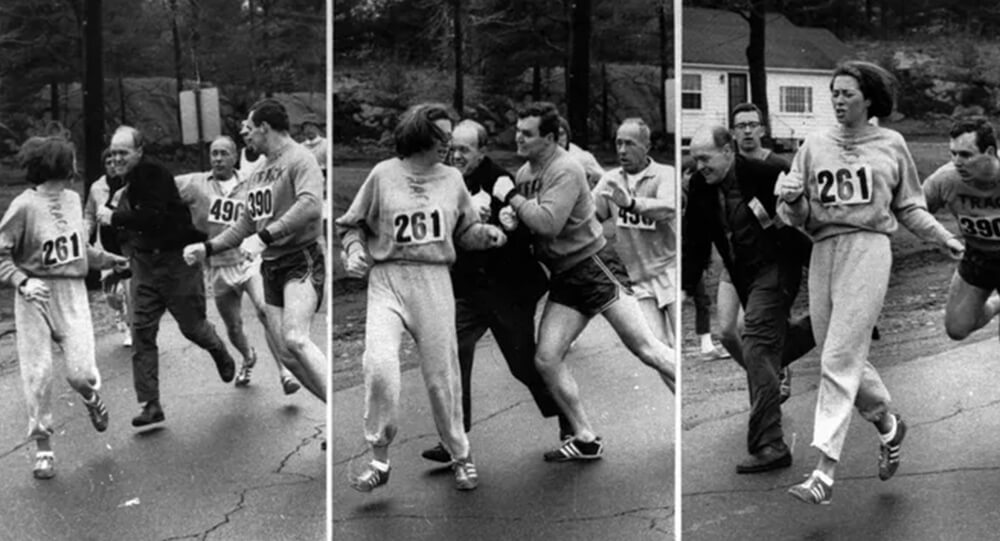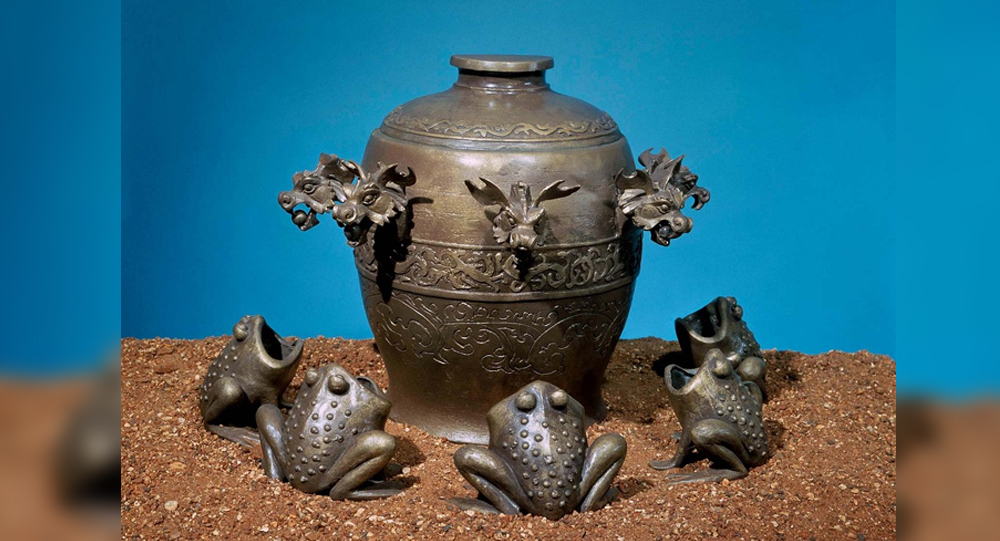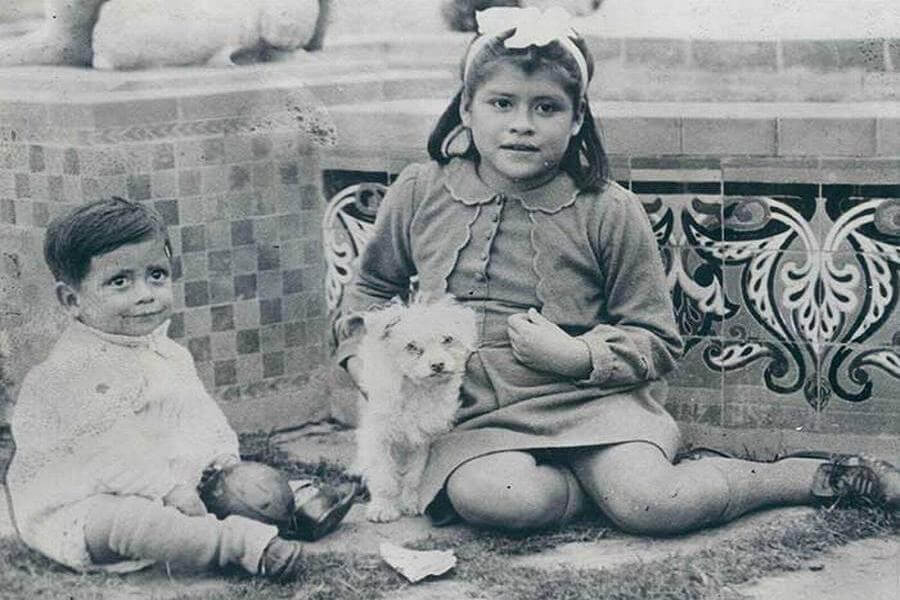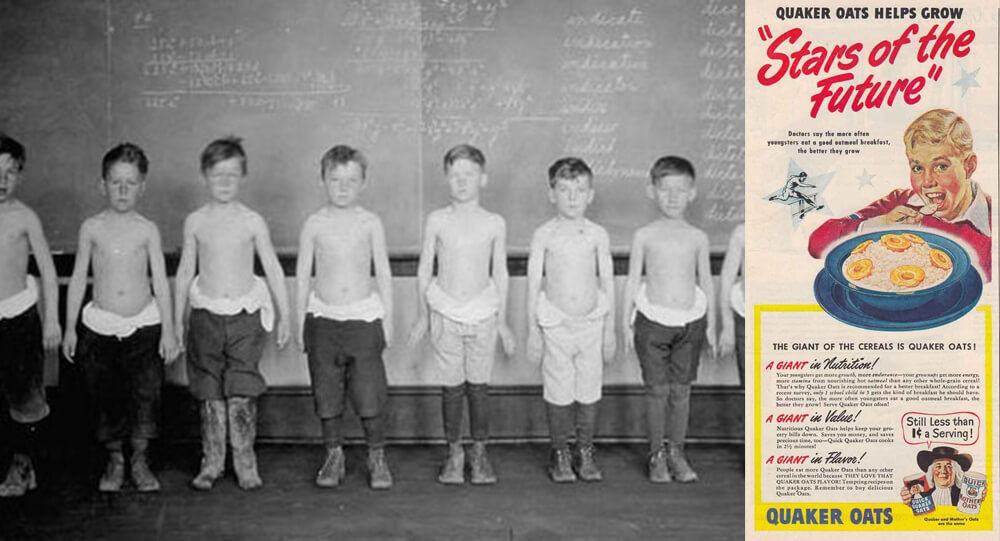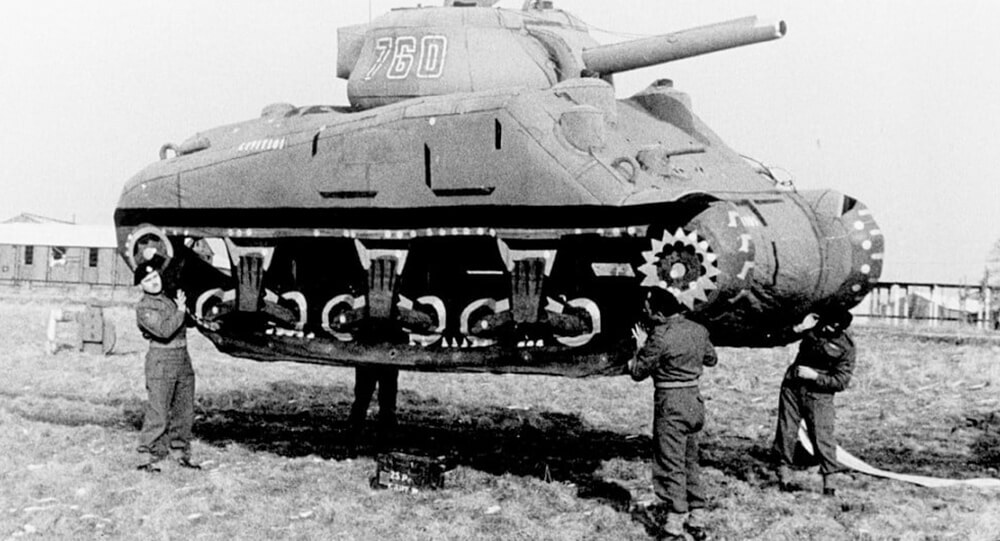

During the 1996 Olympic bombing, Richard Jewell falsely accused of committing the crime after saving dozens of people
On July 27, 1996, a security guard named Richard Jewell discovered a bomb in Atlanta’s Centennial Olympic Park during the Summer Olympics. Jewell’s quick thinking allowed him to evacuate dozens of people just before the bomb exploded, saving countless lives.

However, a few days later, news reports stated that Jewell had been designated as the FBI’s top suspect in the bombing. In the public eye, the hero quickly changed into the villain. From the Atlanta Journal-Constitution to CNN, media outlets from all over the nation painted Richard Jewell as a wannabe police officer who was so eager to play the hero that he was prepared to kill people for it.
Richard Jewell was never even formally charged with a crime, but for a torturous 88 days, everyone seemed to agree that he was guilty. In actuality, the FBI quickly gave up on Jewell’s case after realizing that he wasn’t the person they were looking for. And in 2005, a different man by the name of Eric Rudolph admitted to detonating the bomb.
Richard Jewell’s reputation was irreparably damaged, but it was too late. Later, the notorious case was examined in the 2019 film Richard Jewell. This Clint Eastwood-directed movie was made to serve as a warning about how hasty conclusions can lead to the death of an innocent person. The real account of Richard Jewell’s events, however, is even more tragic.
Richard Jewell: Who Was He?

Prior to his ascent into the public eye, Richard Jewell lived a fairly ordinary life. On December 17, 1962, in Danville, Virginia, he was given the name Richard White. His mother, Bobi, brought him up in a strict Baptist family.
Richard’s mother left his philandering father when he was four years old and soon after married John Jewell, who raised Richard as his own son.
The family relocated to Atlanta, Georgia, when Richard Jewell was six years old. Even though Jewell had few friends as a young boy, he managed to stay busy on his own.
“I was a wannabe athlete, but I wasn’t good enough,” he admitted to Vanity Fair in 1997. He either volunteered at the school or assisted teachers when he wasn’t reading books about the World Wars.
After high school, he enrolled in a technical college in southern Georgia because he wanted to pursue his dream of becoming a car mechanic. However, Bobi learned about Jewell’s stepfather abandoning the family three days into the semester. Jewell left his new school in order to be with his mother.
After that, while continuing to live with his mother, he worked a variety of odd jobs, from running a neighborhood yogurt shop to serving as a jailer at the Habersham County Sheriff’s Office in northeastern Georgia.

Soon enough, he began to consider joining the police. After serving as a jailer for a year, Richard Jewell was elevated to the position of deputy in 1991. He was also sent to the Northeast Georgia Police Academy as part of his training, where he graduated in the top 25% of his class.
Richard Jewell appeared to have discovered his vocation at that point.
“You must be aware that Richard Jewell is a police officer in order to comprehend him. During the Olympic bombing investigation, Jack Martin, one of Jewell’s attorneys, remarked that Jewell “talks like a cop and thinks like a cop.” Even after being mistreated by the FBI, Jewell’s dedication to upholding the law was evident in the way he spoke about matters relating to police work.
Jewell’s excessive passion occasionally put him in danger. He was even once detained for pretending to be a police officer and put on probation with the requirement that he get counseling. Jewell left the sheriff’s office and took a job as a police officer at Piedmont College after wrecking his patrol car and being relegated to the position of a jailer.
Conflict arose between Jewell and the school’s administrators as a result of her harsh student policing methods. Officials from the school claim that he was ultimately pressured into leaving his position. In a cruel irony, Jewell’s admiration for law enforcement was later portrayed as obsessional, suggesting that he might resort to drastic measures in an effort to gain attention.
Richard Jewell’s Valor in the 1996 Olympic Park Bombing

Jewell reasoned that there was probably a security job waiting for him at the 1996 Summer Olympics in Atlanta given all the publicity surrounding them.
Since his mother, who still lived in Atlanta, was preparing to have foot surgery, it seemed like the perfect opportunity. And in the end, Jewell was hired to work the 12-hour night shift as one of the security officers. He had no idea that his new job would soon cause chaos in his life.
He reportedly left his mother’s home for the Olympic Park at 4:45 p.m. on July 26, 1996, according to Jewell. and 45 minutes later arrived at the AT&T pavilion. Around ten o’clock he stopped to use the restroom.
Jewell noticed a group of inebriated people littering all over the sound-and-light tower by a music venue when he returned to his station nearby. He later admitted to being irritated with the group because they had made a mess and were bothering the camera crew to an FBI agent.

As the vigilante he was, Jewell went right away to report the drunk litterbugs. But on the way, he noticed a military-style backpack in an olive green color that had been abandoned under a bench. He initially didn’t give it much thought and even made light of the bag’s contents with Tom Davis, an investigator with the Georgia Bureau of Investigation (GBI).
“Well, I am sure one of these people left it on the ground,” Jewell said as she reflected. The little hairs on the back of my head started to stand up when Davis returned and said, “Nobody said it was theirs.” “Oh no,” I thought. This is not a good thing.
Jewell and Davis swiftly ordered onlookers away from the vicinity of the mysterious backpack. In addition, Jewell made two trips up into the tower to alert and then evacuated the technicians.
approximately 1:30 a.m. The backpack exploded on July 27, 1996, scattering shrapnel onto the crowds of onlookers nearby. Investigators discovered that the attacker had inserted nails inside a pipe bomb, a menacing device designed to cause the greatest amount of damage, after the attack.
Why Did Many People Believe Richard Jewell Was Guilty?

Soon after the explosion, federal agents flooded Atlanta’s Centennial Olympic Park. Even a year later, Richard Jewell, who spoke with the first agents to arrive at the park, had a clear memory of the chaotic scene that followed the bomb’s explosion.
It sounded just like what you hear in movies. In a 1997 interview, Jewell remarked, “It was like kaboom. “All of the shrapnel that was inside the package kept flying around, and some of the people got hit from the bench and some with metal.”
According to later reports, dispatchers were alerted to the threat by a 911 call from a nearby phone booth that said, “There is a bomb in Centennial Park. It was probably the bomber who said, “You have 30 minutes.”
One woman was killed and 111 people were injured in the Centennial Olympic Park explosion; a cameraman also passed away from a heart attack while trying to capture the event. However, the number of fatalities could have easily been much higher if Richard Jewell hadn’t partially evacuated the area.
Richard Jewell was immediately hailed as a hero by the media after they learned about his discovery of the bag and the action he took to evacuate the crowd.
However, his notoriety quickly faded after the Atlanta Journal-Constitution ran a front-page article with the headline “FBI Suspects ‘Hero’ Guard May Have Planted Bomb,” which implied Richard Jewell might have been responsible for organizing the attack in the first place.
The newspaper’s police reporter, Kathy Scruggs, reportedly received information about Richard Jewell’s potential involvement in the bombing investigation from a friend who works for the federal bureau. Another source who was affiliated with the Atlanta police confirmed the tip.
The most damaging part of the article was one sentence: “Richard Jewell… fits the profile of the lone bomber,” which was printed despite neither the FBI nor experts in criminal behavior making any public statements. Other news organizations that covered the bombshell story described Jewell in a similar manner, portraying him as a one-man bomber and wannabe police officer.

“They were talking about a hero bomber’s FBI profile, and I was like, ‘What FBI profile?The late Robert Ressler, a former FBI agent from the Behavioral Science Unit who interrogated notorious murderers like Ted Bundy and Jeffrey Dahmer during his career, said, “It rather surprised me.
The “hero bomber” profile does not exist, according to Ressler, who co-wrote the Crime Classification Manual used by the FBI.
Ressler had a sneaking suspicion that the phrase was a bombastic take on “hero homicide,” which describes a person who craves attention but wouldn’t kill anyone.
He and his mother were the subject of a media frenzy for 88 days after the FBI’s investigation into Richard Jewell was reported. News vans staked out in front of his mother’s apartment as investigators searched it and brought Jewell inside for questioning.
The United States announced in October 1996 that Richard Jewell could not have detonated the bomb based on his whereabouts that evening. He was formally exonerated by the Justice Department of being a suspect in the Centennial Park bombing investigation. However, his reputation had already been irreparably harmed.
You don’t revert to your original state, Jewell said. “I seriously doubt I’ll ever get that back. I was supposed to be their hero during the first three days—the one who saves lives. They no longer refer to me in that way. I now stand accused of bombing Olympic Park. They believed that individual was responsible.
The Aftermath Of A Tumultuous “Trial By Media”

The incident involving Richard Jewell has become a case study in careless FBI investigation and careless press reporting.
According to one of Jewell’s lawyers, Watson Bryant, “this case has everything — the FBI, the press, the violation of the Bill of Rights, from the First to the Sixth Amendment.”
A phone call from Jewell’s former employer, Piedmont College President Ray Cleere, who informed the FBI about the security guard’s alleged overzealousness and his forcible departure from the school, served as a catalyst for the investigation into Jewell’s innocence. However, aside from the bureau, no one else can be made to answer for the investigation’s poor management.
One year after the bombing, a Vanity Fair story exposed tensions within the organization brought on by toxic rivalries and micromanaging leadership, particularly from then-FBI Director Louis Freeh. Due to the FBI’s handling of the case, an investigation was launched, and Richard Jewell was requested to testify at congressional hearings regarding the bureau’s actions.

Then it became known that Richard Jewell had been questioned by FBI agents who were directly involved in the bombing case under false pretenses as a suspect. Under the pretense of working with them to create a training video for first responders, FBI agents Don Johnson and Diader Rosario brought Jewell to the agency’s headquarters on July 30, 1996, where she was questioned.
Reexaminations of the case-related reporting also uncovered terrible reporting errors. Despite the lack of supporting evidence, the tone of the reporting implied that Richard Jewell was guilty and portrayed him as a fame-obsessed wannabe hero.
He was referred to in the New York Post as “a Village Rambo” and “a fat, failed former sheriff’s deputy.” Jay Leno said that Jewell “had a scary resemblance to the guy who whacked Nancy Kerrigan,” and questioned, “What is it about the Olympic Games that brings out big fat stupid guys?”
According to Dave Kindred, a columnist for the Atlanta Journal-Constitution, Richard Jewell was drawn to the blue lights and sirens of police activity, just like Wayne Williams, who was convicted of murder and is suspected of killing multiple children. He also rose to fame after a murder, like this one.
What happened to Richard Jewell? His tragically early death and settlements with media outlets

Following an investigation, Richard Jewell filed libel suits against several media organizations and was successful in obtaining settlements from Piedmont College, the New York Post, CNN, and NBC (the latter for an alleged $500,000). He did, however, lose a 10-year battle with Cox Enterprises, the Atlanta newspaper’s parent company.
After Richard Jewell passed away in 2007, the libel case against the Journal-Constitution persisted for years and even reached the Georgia Supreme Court. However, the Court ultimately decided that the newspaper owed Jewell and his family nothing because its reporting was accurate at the time of publication—that is, that he was in fact an FBI suspect in the days following the bombing.
However, Richard Jewell lost two significant things that no amount of settlements could ever bring them back for him: his dignity and peace.
After the Justice Department exonerated him of the bombing, he broke down in tears and said, “I hope and pray that no one else is ever subjected to the pain and the ordeal that I have gone through.”
“The government should be mindful of citizen rights. I’m grateful that it’s over and that you now understand what I already knew: I’m an innocent man.
The real bomber, Eric Rudolph, admitted responsibility for the attack as well as three other bombings in 2005, years after Richard Jewell was cleared of all charges. Sadly, Richard Jewell passed away only two years later.
Richard Jewell passed away on August 29, 2007, as a result of complications from diabetes and heart disease. He was only 44, so after the bombing and the ensuing media frenzy upended his life, he had very little time to enjoy it.

Reason Behind The Suicide Of Christine Chubbuck Live On Air
Actor Rebecca Hall had serious reservations about tackling the macabre story around why Chubbuck killed herself in 1974. So what changed her mind?

What Was the Beast of Gévaudan?
Between 1764 and 1767, a mysterious animal called the Beast of Gévaudan terrorized the French village called Gévaudan. It attacked and killed about 100 adults and children. While most believe it was a wolf, some say it may have been a wolf-dog hybrid, hyena or even a lion, but without any genetic evidence, the beast will remain a mystery forever.

Ea-Nasir: world's oldest written customer complaint
This clay tablet, written in cuneiform, is the oldest known written customer complaint about the delivery of poor quality copper ingots. Originally from ancient Babylon, the tablet dates back to 1750 BCE, and it was written by a customer named Nanni to a merchant named Ea-Nasir. It is currently housed in the British Museum.

How Cleveland's Balloonfest in 1986 Turned Into a Public Tragedy
In Cleveland, Ohio, United Way broke the world record by deflating nearly 1.5 million balloons as part of a publicity stunt to raise money. The balloon obstructed a US Coast Guard search for two boaters who were subsequently discovered to have drowned, blocked airport runways, and blocked land and waterways.

The Forgotten Story of Semipalatinsk and the Soviet Nuclear Experiments
Between 1949 and 1989, the Semipalatinsk Test Site in Kazakhstan became the primary location for Soviet nuclear weapons tests, exposing millions of unsuspecting villagers to radioactive fallout. Known as the “Polygon of Suffering,” this remote desert witnessed 456 nuclear detonations that caused widespread health crises, birth defects, and generational genetic damage. This article narrates the chilling legacy of Semipalatinsk, unveiling the human cost of Cold War arms development and the ongoing struggle for healing and recognition in Kazakhstan.

Graves holding hands over wall, A Catholic woman and her Protestant husband grave
A protestant man and a Catholic woman who weren't allowed from being buried together in a graveyard in 19th-century Holland turned their graves into a monument showing them holding hands across the wall separating them.

Why This Belgian Bar Makes You Trade Your Shoe for a Beer
To prevent tourists from stealing their beer glasses, some bars in Belgium require people to hand over one of their shoes as a deposit which is then put in a basket and hung from the ceiling. These shoe baskets have also become an attraction.

Thomas Baker's heroic act that earned him the "Medal of Honor" was 8 bullets until death
Thomas Baker instructed his team to leave him with a pistol and eight bullets propped up against a tree after he was injured. Later, American troops discovered the now-deceased Baker in the same location, lying next to eight dead Japanese soldiers and carrying an empty pistol.

Story of Kathrine Switzer: the first woman to run in Boston Marathon
Before women were allowed to run in the Boston Marathon, Kathrine Switzer participated. A race official attempted to forcefully remove her from the race in 1967, but her boyfriend pushed him down. She was the first female finisher who had a numbered entry in the race.

Why was the Eiffel Tower almost demolished
The Eiffel Tower was intended to be a temporary structure for the World's Fair in 1889, but it was nearly dismantled and sold for scrap metal. It was saved because of its potential use as a radio antenna, and it now serves as a tourist attraction as well as a working broadcast tower.

Inside China’s Footbinding Tradition: The Painful Ritual of Lotus Shoes and Bound Feet
In China, Lotus shoes were used to bind women's feet to keep their feet small

The World’s First Seismograph: How Ancient China Detected Earthquakes 1,800 Years Ago
Over 1,800 years ago, long before modern technology, the ancient Chinese astronomer and inventor Zhang Heng created the world’s first seismograph in 132 AD. This ingenious bronze device could detect distant earthquakes by releasing small balls from dragons’ mouths into toads’ mouths—each indicating a different compass direction. Its historic detection of an earthquake 400 miles away astonished the imperial court and transformed the way societies understood and responded to seismic events.

The Mouth of Truth: Ancient Rome’s Legendary "Lie Detector" That Bit Off Hands
Discover the chilling legend of the Mouth of Truth (Bocca della Verità) in Ancient Rome—a massive carved stone face believed to bite off the hand of anyone who lied while inserting their hand into its gaping mouth. Uncover the truth behind its eerie reputation and how this ancient artifact became a symbol of honesty and fear.

Blanche Monnier: Imprisoned For 25 Years For Falling in Love
Blanche Monnier, she was a French woman noted for her beauty, she wished to marry an old lawyer that her mother disapproved of, so she locked her in a small dark room in her attic for 25 years.

The Day an Israeli F-15 Landed with One Wing: Zivi Nedivi’s Unbelievable Mid-Air Survival
Discover the astonishing true story of Israeli pilot Zivi Nedivi, who safely landed an F-15 after a mid-air collision tore off its entire right wing. Learn how skill, quick thinking, and the F-15’s unique design turned a disaster into a legendary feat in aviation history

Roller Coasters were First Invented to Distract People from sin
Roller coasters were invented to distract Americans from sin. In the 1880s, hosiery businessman LaMarcus Thompson didn’t like that Americans were going to places like saloons and brothels and created the first roller coaster on Coney Island to persuade them to go there instead.

story of the youngest mother in the world at age of five - Lina Medina
Lina Medina, a five-year-old Peruvian girl, became the youngest mother in history in 1939 when she gave birth to a boy.

The history of Flour sack clothing fashion
After Kansas mill owners found women reused flour sack materials into apparel in the 1920s and 1930s, they started applying patterned designs to give families with more fashionable patterns and material.

Did Gil Pérez Really Teleport from Manila to Mexico Overnight? The 1593 Mystery
On October 24, 1593, while performing his guard duties at Manila's Governor's Palace in the Philippines, Gil Perez stopped to lean against a wall and sleep for a while. He opened his eyes to find himself in an unusual environment. Gil was in the Plaza Mayor in Mexico City. They imprisoned Perez, but the authorities in Mexico City decided to release him and return him home.

The Tragic Story Of Mary Ann Bevan, The ‘Ugliest Woman In The World’
After the death of her husband, Mary Ann Bevan had no income to support herself and her children. She then decided to enter a contest where she won the title of “ugliest woman” and was later hired by a circus. She endured this ridicule from the world to provide for her family.

Top 10 most cruel medical procedures that are being used today
We are all aware that medicine has advanced dramatically over the last fifty years. There are several modern medical approaches available today, but this was not always the case. However, the past of medicine is a dark one. Medical leeches, lobotomy, vascular surgery, cranial stenosis, and even electroshock therapy are all options. These are only a couple of the cruel healing techniques that are still in use today.

Quaker Oats Fed Children with Radioactive Oatmeal
In the 1940s and 1950s, Quaker Oats and MIT conducted experiments on radioactive iron and calcium-containing cereal. The diet was part of a study to see if the nutrients in Quaker oatmeal traveled throughout the body. In January 1998, a $1.85 million settlement was reached for 30 victims who came forward.

The 1976 April Fools' Pranks, Planetary Alignment
On April fool's Day, 1976, the BBC convinced many listeners that a special alignment of the planets would temporarily decrease gravity on Earth. Phone lines were flooded with callers who claimed they felt the effects.

What exactly was the US's 'Ghost Army' during WWII?
During WW2, there was a special unit of men dubbed the ‘Ghost Army’. The unit was made of artists, creative and engineers and their job was to create deception about the enemy. From inflatable tanks to phony convoys to scripted conversations in bars intended to spread disinformation, they used all possible tricks to fool the enemy.

Juliane Koepcke: The Teenager Who Fell 10,000 Feet And Trekked The Jungle to survive
In 1971, a high school student was sucked out of an airplane after it was struck by lightning. She fell 10,000 feet to the ground while still strapped to her chair and survived. Only to endure a 9-day trek to the nearest civilization.



